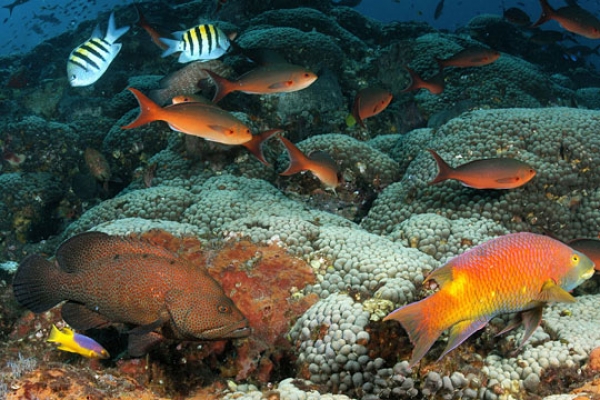Ocean temperatures in the Gulf of Mexico and the Caribbean Sea are on pace to surpass critical thresholds for coral health by mid-century, but rapid action to significantly reduce emissions could slow warming, giving corals and coral conservation programs as much as 20 more years to adapt, according to new research.
Climate scientists and marine biologists from Rice University, the University of Colorado Boulder and Louisiana State University used computer models to simulate climate warming from 2015-2100 under both a “business as usual” scenario with very high emissions and a scenario in which emissions were reduced to high levels. Their study and analysis of ocean warming and ocean acidification levels for specific regions in the Gulf of Mexico and Caribbean under each scenario is published in the Journal of Geophysical Research: Biogeosciences. The researchers found reducing emissions could delay the onset of critically warm ocean temperatures in some areas where reefs are still healthy.
“There are reefs in the Gulf that are really worth saving,” said Rice University marine biologist Adrienne Correa, a co-author of the study. “Some of the healthiest reefs that we still have in the United States are in the areas covered by these projections.”
Read More at: Rice University
The Flower Garden Banks National Marine Sanctuary about 100 miles offshore from Texas and Louisiana is home to some of the healthiest coral reefs in the United States. (Photo Credit: G.P. Schmahl/NOAA)


